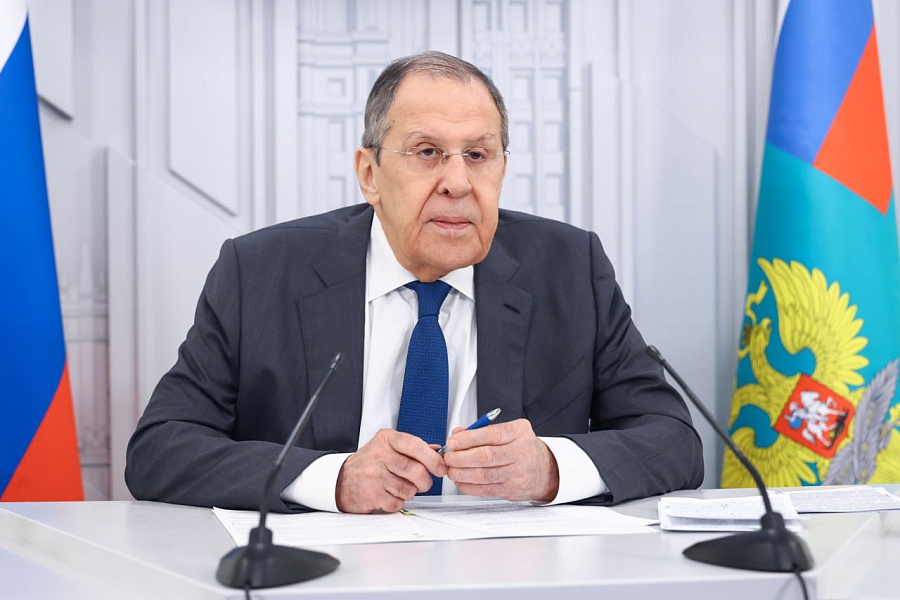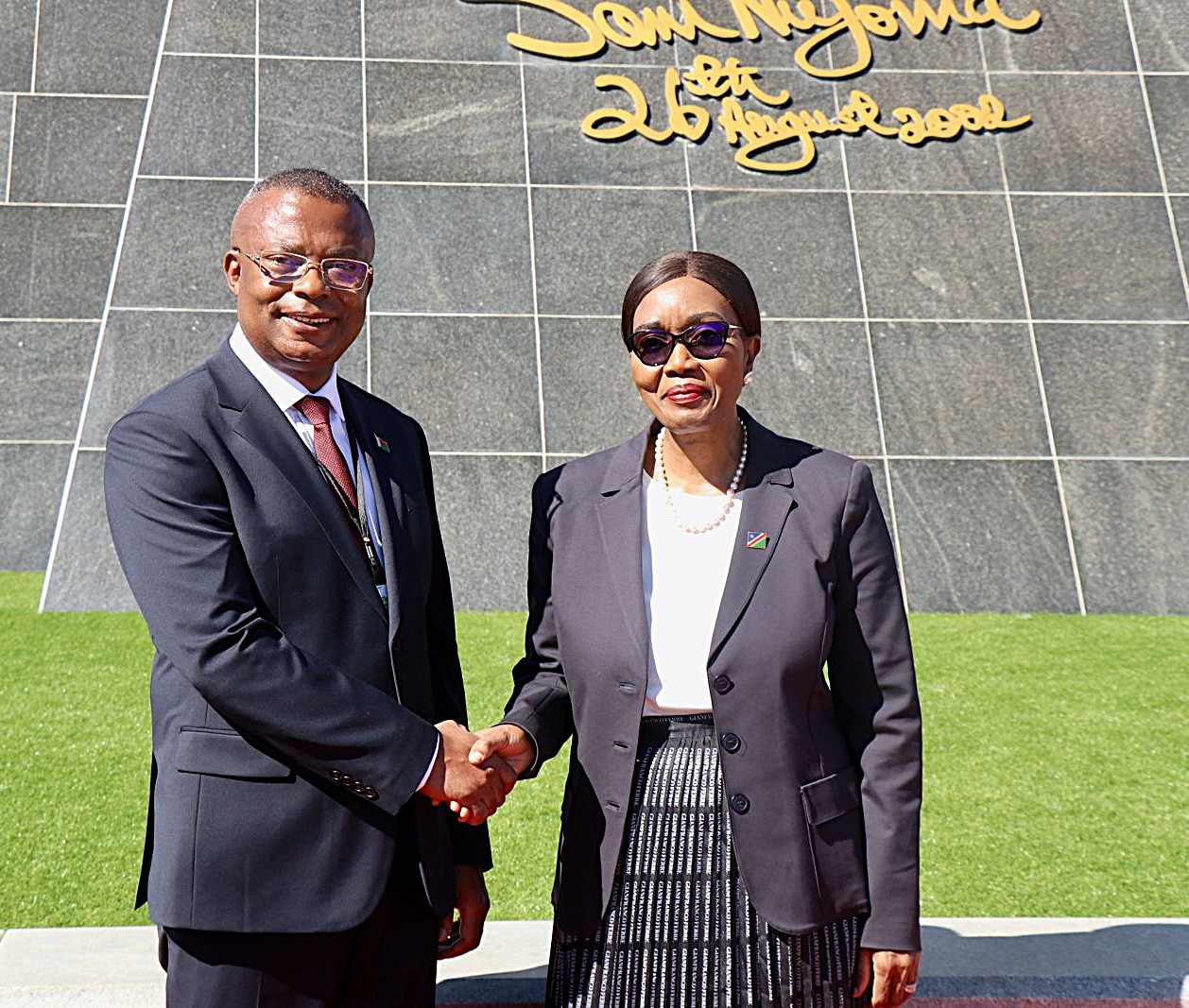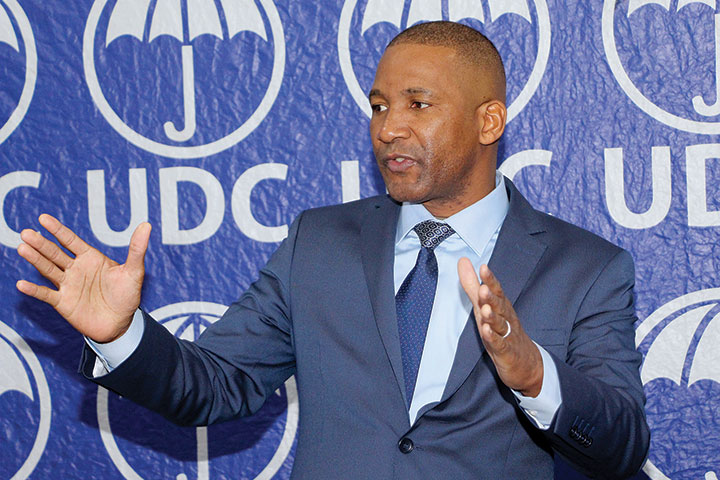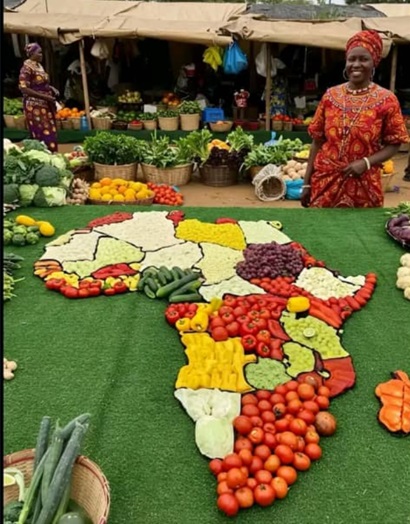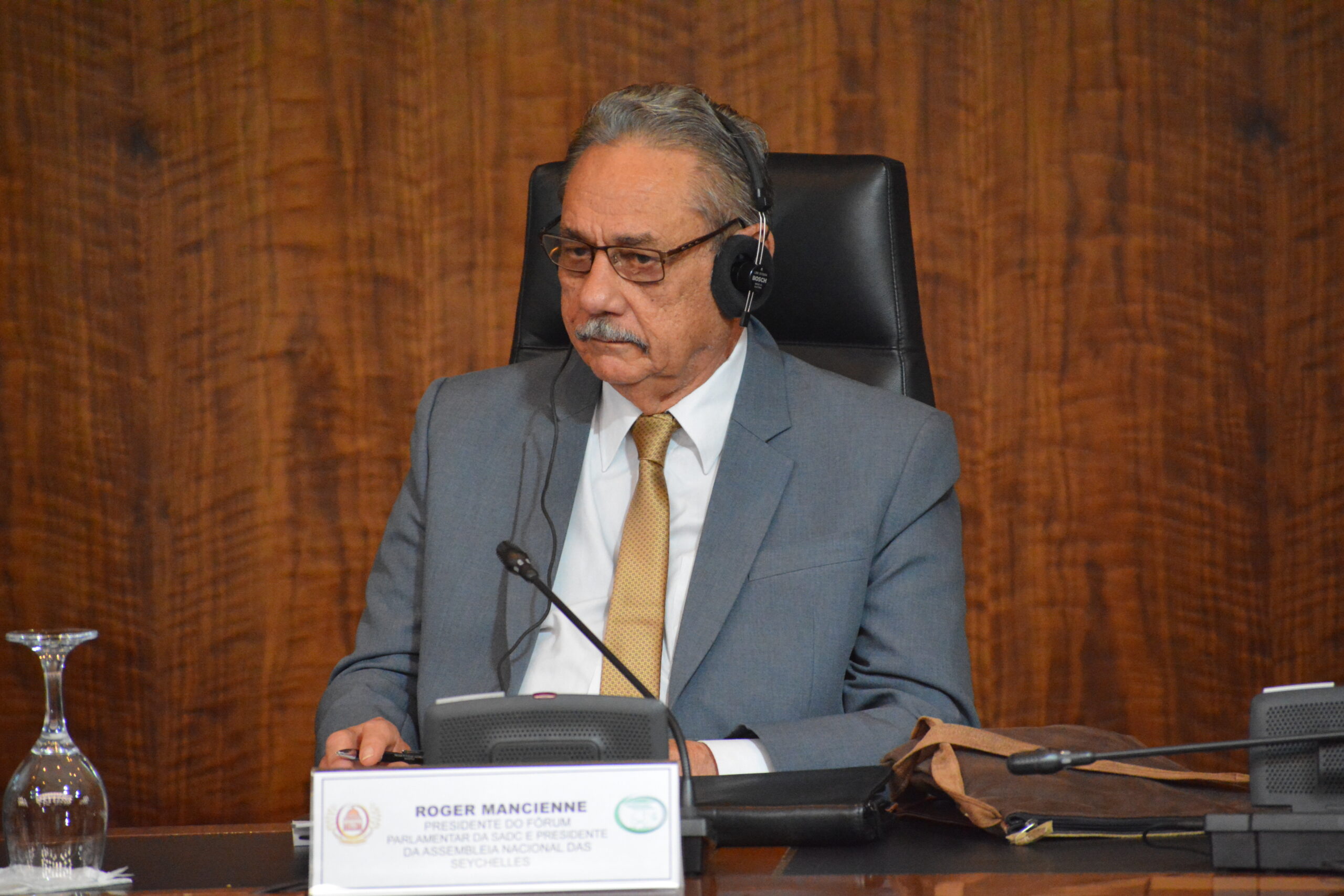
The President of the SADC Parliamentary Forum, Honourable Roger Mancienne. Photo: Moses Magadza
By Moses Magadza
The President of the SADC Parliamentary Forum, Honourable Roger Mancienne, has urged Members of Parliament to ensure that national budgets have a component related to climate measures, to repair damage and protect against future events.
Honourable Mancienne, who is also the Speaker of National Assembly of Seychelles, said this on 26 June 2024 when he officially opened a Parliamentary Dialogue on the side-lines of the London Climate Action Week which ran from 22-30 June 2024.

The virtual dialogue was held under the theme: “Securing Our Future: Parliamentary Leadership in Financing Climate Adaptation”. It sought to answer the question “How can parliaments ensure that adaptation finance is effectively integrated into broader development policies and strategies to promote sustainability and resilience?”
He noted that despite mounting evidence of the dire consequences of climate change, global action remains insufficient to address the evolving challenges. While climate change is a threat to countries around the world, the capacity to adapt to climate-related disasters varies significantly.
He said parliamentarians play a crucial role in ensuring the future resilience of their countries.
Hon Mancienne urged parliamentarians to be vigilant and persistent in giving attention to climate adaptation and building resilience, to secure finance and resources for adaptation and resilience.
“We must reconsider where and how we build houses, our flexible and resilient health care facilities, how we can better secure communications, what kind of reserves we have in food production and many more considerations,” he said.
Parliaments must also constantly monitor the allocation of resources to ensure they are spent effectively and for maximum benefit, he stated.
He said Southern Africa was susceptible to climate related events – from Kenya and the Democratic Republic of Congo down to the Cape.
“The eastern part is prone to cyclones and extreme rainfall leading to flooding in large parts. Tanzania, Mozambique, Malawi and the DRC have suffered major incidents while on the western side, droughts are persistent occurrences,” he said.
Hon Mancienne said this categorisation was only a part of the picture because in many areas droughts alternate with flooding.
“In island countries like my own (Seychelles), the threat of the sea level rise is becoming increasingly serious, impacting on coastal infrastructure and economic activities.
“Experts tell us the adverse conditions are set to continue and become more serious in the future,” he said.
The SADC-PF President said the most notable consequences of climate change are food insecurity because rural farming areas experience loss of crops.
“There is also water scarcity, an ever-pressing issue which may lead to insecurity and conflict in addition to health consequences from the proliferation of diseases with vulnerable groups, especially children, most at risk,” he said, also highlighting damage to infrastructure vital to economic sustainability.
“In short, there is a lot at stake. Parliamentarians have a lot to contend with as they must be ever mindful of the danger that climate means for our region and for the world. We must keep this issue in the forefront of our considerations,” he said.
He said parliamentarians representing a particular constituency may be tempted to think climate adaptation is somebody else’s business.
“We have to get that it is everybody’s business,” he said.
Hon Mancienne said parliamentarians must be initiative-taking in parliament and outside to build awareness of the challenges and to lead the way in finding solutions.
He urged the MPs to assess the implications of climate events for their constituencies and take every opportunity to bring them to attention while they build partnerships in seeking solutions, and in this instance finance and resources.
He reiterated support for the objectives of the seminar and commitment to pursuing them in the National Assembly of Seychelles and the SADC Parliamentary Forum.
He noted that the 28th Conference of the Parties (COP28) to the United Nations Framework Convention on Climate Change, held in Dubai, UAE in December 2023, marked a significant milestone with the adoption of the “UAE Consensus” and the Global Goal on Adaptation Framework.
He said it was regrettable that despite these positive steps, the global stocktake revealed significant gaps in adaptation efforts across sectors and regions.
The lawmaker said it was alarming that adaptation finance flows had decreased by 15%, highlighting the urgency to bridge this gap ahead of COP29 scheduled to take place in Baku, Azerbaijan, in November 2024, where key decisions regarding the new collective quantified goal for climate finance will be made.
As the deadline looms for meeting the doubling of adaptation finance targets within the remaining year, Honourable Mancienne warned that failing to prioritise adaptation finance risks worsening the adverse impacts of climate change on the most vulnerable communities and undermining progress towards global climate goals.
“Concerted efforts will be required to fulfil commitments and expedite adaptation finance to meet the needs of those most affected by climate change as we navigate toward COP 29,” he said.
(C) TPA2024

